![]()
![]()
![]()
![]()

![]()
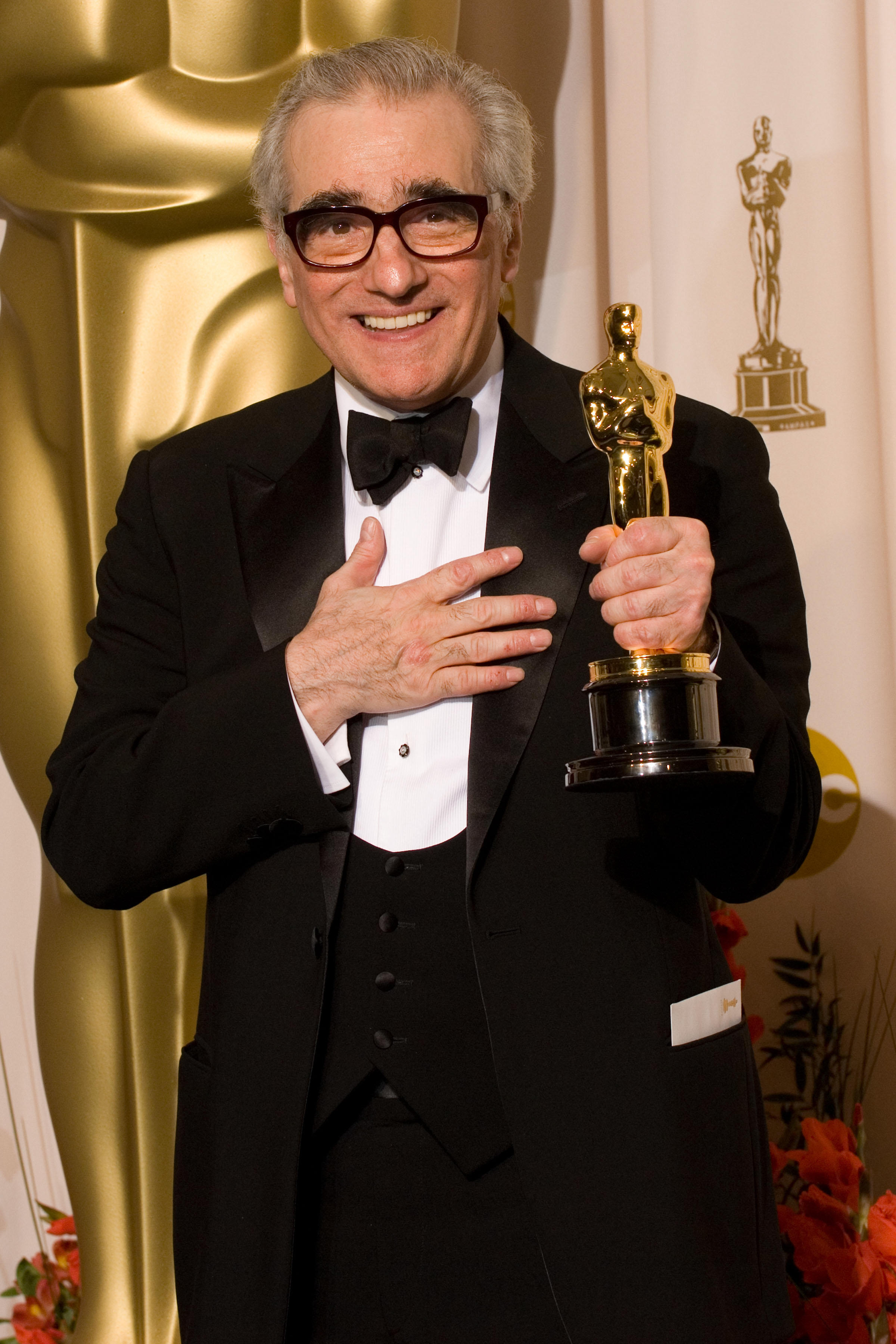
Finally, and thank-you: Martin Scorsese "clutches" his heart (and
Oscar) backstage after winning the Academy Award for directing "The Departed".
It was his first win in eight attempts. (All photos: AMPAS)
![]()
![]()
![]()
![]()
![]()
![]()
It was a night of fun, suspense and a few surprises at the 79th Annual Academy
Awards. There were also one long-awaited honor.
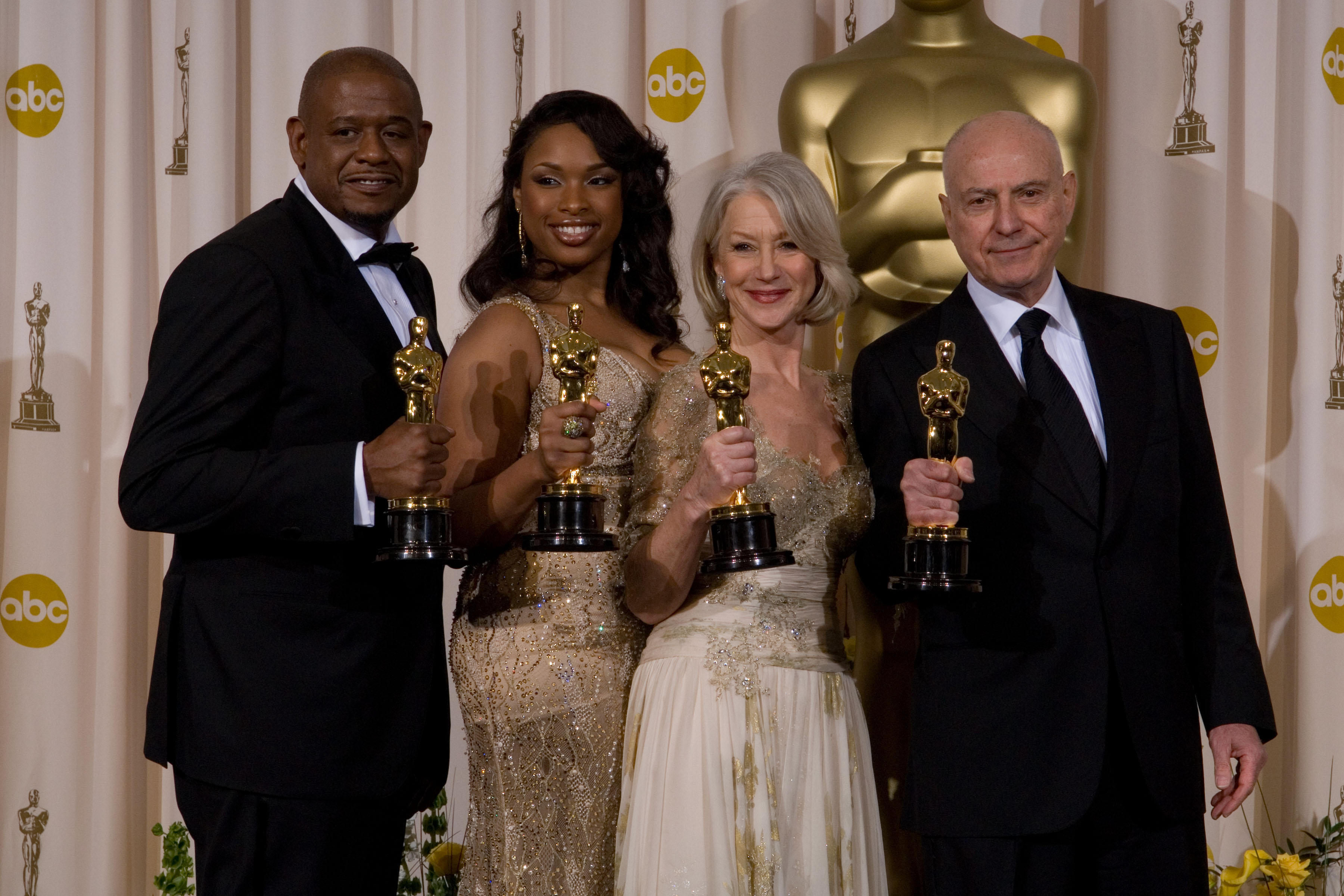
Fantastic four: The top acting winners backstage with their
prizes: Forest Whitaker, Jennifer Hudson, Helen Mirren and Alan Arkin.
While celebrating this year's Oscar nominees was a central theme emphasized by
host Ellen DeGeneres and producer Laura Ziskin, it was quite clear that winning
still reigned supreme as "The Departed" absconded with four Academy Awards
including Best Picture and Best Adapted Screenplay. Above winning the
biggest prize of the night, Oscar night's biggest moment belonged to Martin
Scorsese, whom after eight attempts won his first Oscar, winning Best Director
for "The Departed". Happy and surprised as he met America's three top film
directors (Steven Spielberg, Francis Ford Coppola and George Lucas) on stage, he
quipped, "could you double-check the envelope?"
The 1957 film "Marty" won best picture honors at the Oscars years ago, and now
roughly 50 years later the Academy was saying hello again to Marty -- except
this time it was Martin Scorsese. And it had been a long time coming.
The audience inside the grand Kodak Theatre stood in unison as Mr. Scorsese took
the stage. The director entreated them all to sit down, several times.
"Please", he said. Scorsese was clearly elated and a little embarrassed
that his peers bestowed such admiration and kudos on him. The director had
been nominated in the category for directing such films as "Taxi Driver",
"Raging Bull", "GoodFellas", "The Age Of Innocence", "Casino", "Gangs Of New
York" and "The Aviator" and came away empty-handed on each of those seven prior
occasions. He breathlessly thanked everyone that he could, paying tribute
to earlier winners William Monahan (adapted screenplay) - "thanks to Bill
Monahan for writing that crazy script that got me into trouble in the first
place", and Thelma Schoonmaker (editing), who won her third editing Oscar.
Early hints of big night for Mr. Scorsese came when a writer for US Magazine in
the afternoon went on CNN cable television to disclose a rumor that Mr. Coppola,
Mr. Lucas and Mr. Spielberg would present the best director Oscar. Since
the nominations were announced last month, many had said that the best director
prize would come down to whether Clint Eastwood ("Letters Of Iwo Jima") would
win a third directing Oscar (and second in three years) or the oft-nominated
Scorsese would finally break his duck, and it seemed assured that Mr. Scorsese
would prevail with the news that three directing legends would present.
With this Oscar Mr. Scorsese joins the world's directing legends. Some may
have thought that "The Departed" was not his best work, but they likely could
not argue that Mr. Scorsese deserved the honor on this night. "The
Departed", based on the original 2002 Hong Kong film "Infernal Affairs" (a film
that was part of a trilogy) was the first best picture Oscar-winning film based
wholly on another film released less than five years prior. (In fact,
"Infernal Affairs", directed by Andrew Lau and Alan Mak, was released in the
United States in 2004.)
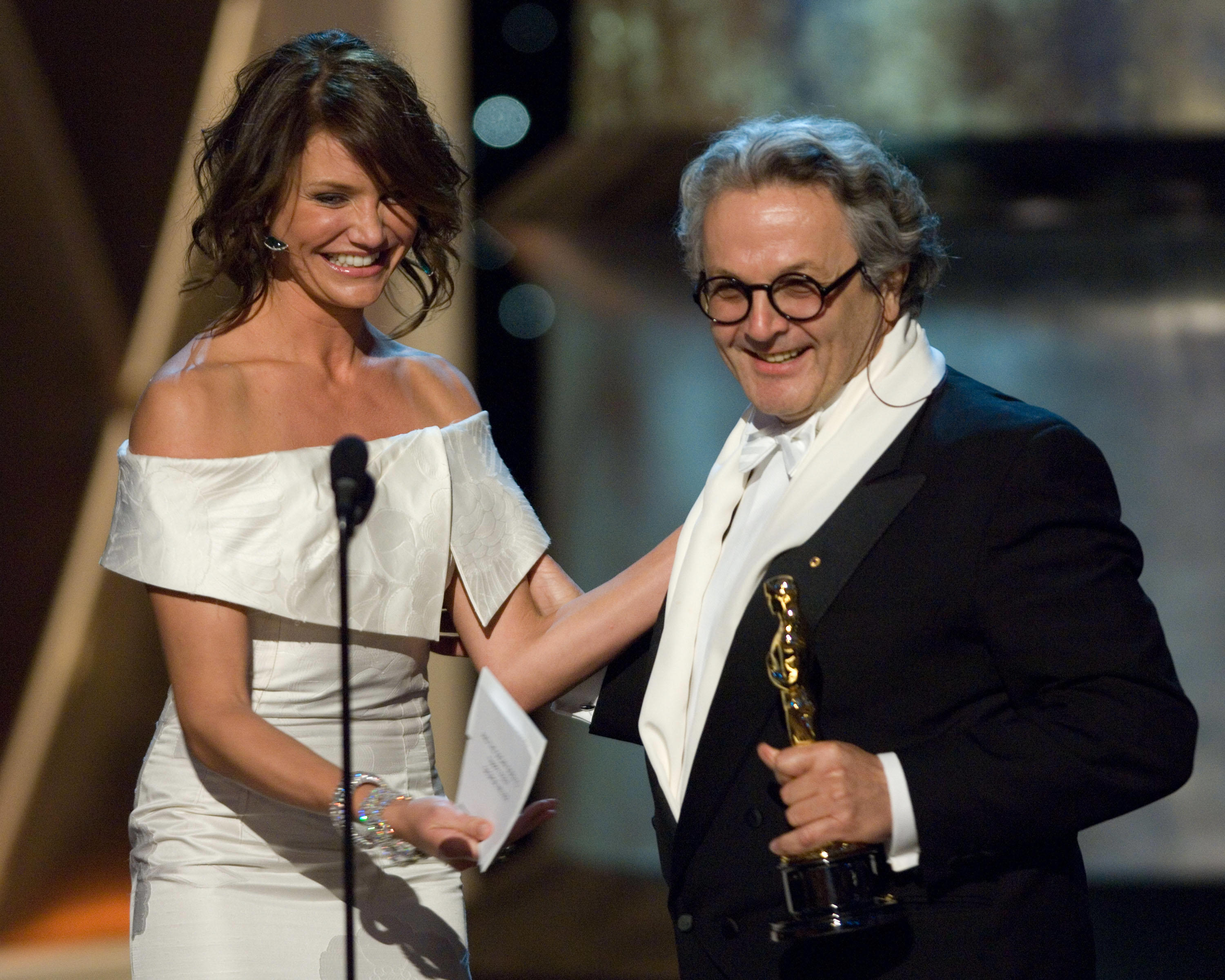
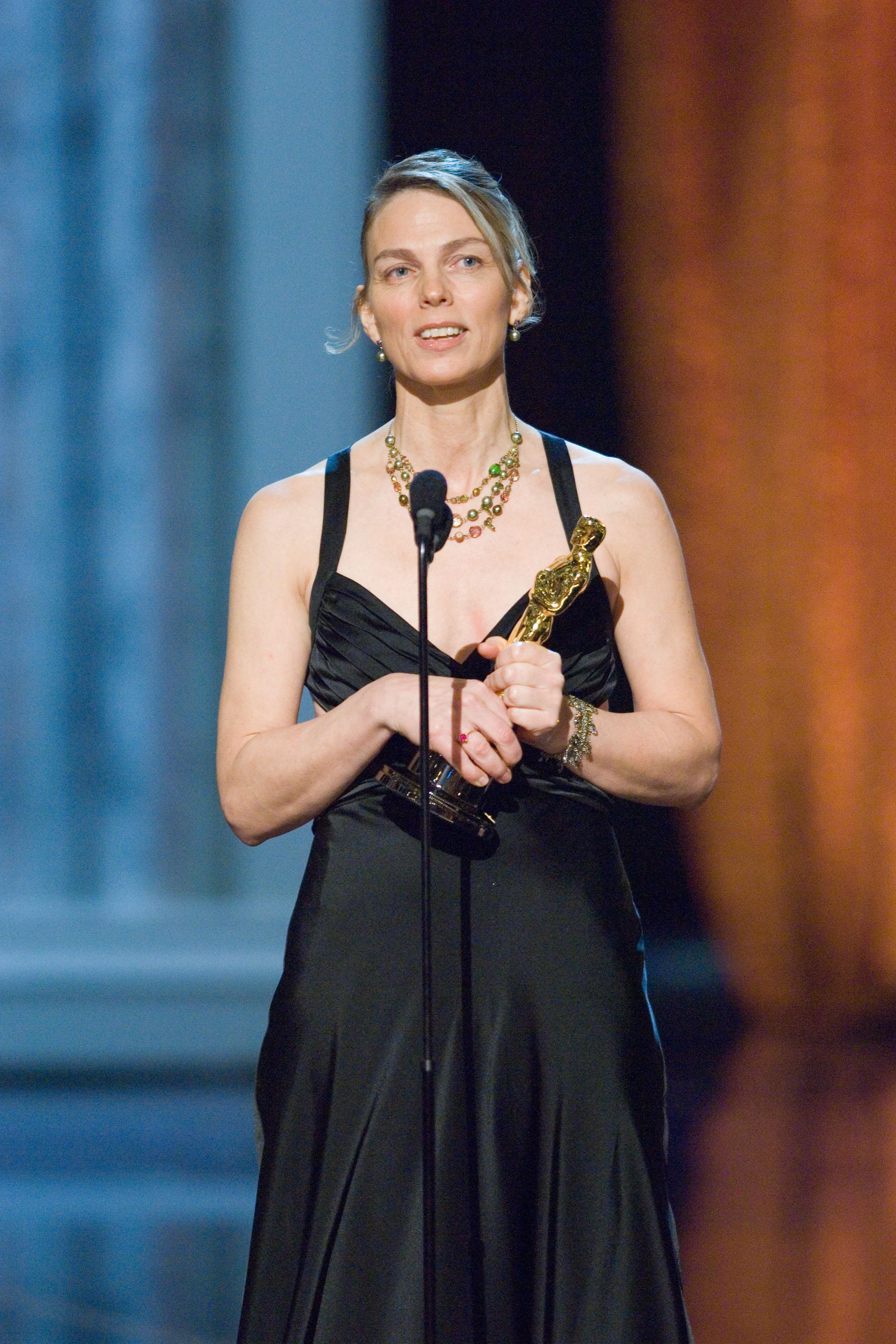
Cameron Diaz presents the best animated feature Oscar to director
George Miller, for "Happy Feet"; director Torill Kove accepting the Oscar for
best animated short film "The Danish Poet."
The oft-quoted rule that films nominated for best picture traditionally are
released in the U.S. in December of a film year, was abandoned this year.
Of the best picture nominees only "Letters From Iwo Jima" was released in
December. "Little Miss Sunshine" was released last July, and both "Babel"
and "The Queen" were released in October. Additionally, "The Departed"
(which was also released in October 2006 in the U.S.), was one of three best
picture nominees that was already available on DVD in the United States before
Oscar night arrived. ("Babel" and "Little Miss Sunshine" were the other
two.) The trend toward selecting a film released in December appears to be
waning, at least for the past two years. Last year's best picture winner,
"Crash", was released in May of 2005 in the United States. "The Departed"
was also the second best picture in the last four years that had already grossed
over $100 million in the U.S. before Oscar night. (In 2004, "The Lord Of
The Rings: The Return Of The King" had surpassed the $100 million mark in the
U.S. before winning eleven Academy Awards.)
Forest Whitaker and Helen Mirren completed a major awards sweep as they were
coronated king and queen with wins in their respective lead acting awards.
Mr. Whitaker took a deep breath, let the moment sink in, paused, and then gave a
deeply heartfelt speech about the craft of acting, which brought some in the
Kodak Theatre to tears. Whitaker won for "The Last King of Scotland" for
playing the brutal dictator of Uganda, Idi Amin, a man whose charisma and
magnetism gave way to psychotic and murderous appetites, which sent thousands in
the African nation to their deaths under his rule. During this awards
season the actor said he was careful to portray Mr. Amin as a nuanced man, and
not as a one-dimensional character that would contribute to the many negative
images of blacks on the big screen. "Receiving this honor tonight tells me
that . . . it's possible for a kid from East Texas, raised in South Central L.A.
in Carson, who believes in his dreams, commits himself to them with his heart,
to touch them, and to have them happen."
Helen Mirren dedicated her Oscar to the reigning Queen of England, Elizabeth
Windsor, whom she portrayed in "The Queen". The current British monarch,
now 81 years old, was played by the 61-year-old British actor from Essex, who
beamed as she took the stage. "You know, my sister told me that all kids
love to get gold stars, and this is the biggest and best gold star that I have
ever had in my life." She ended her speech which praised the four other
nominees in her category and "Queen" director Stephen Frears, with, "ladies and
gentlemen, I give you the Queen!"
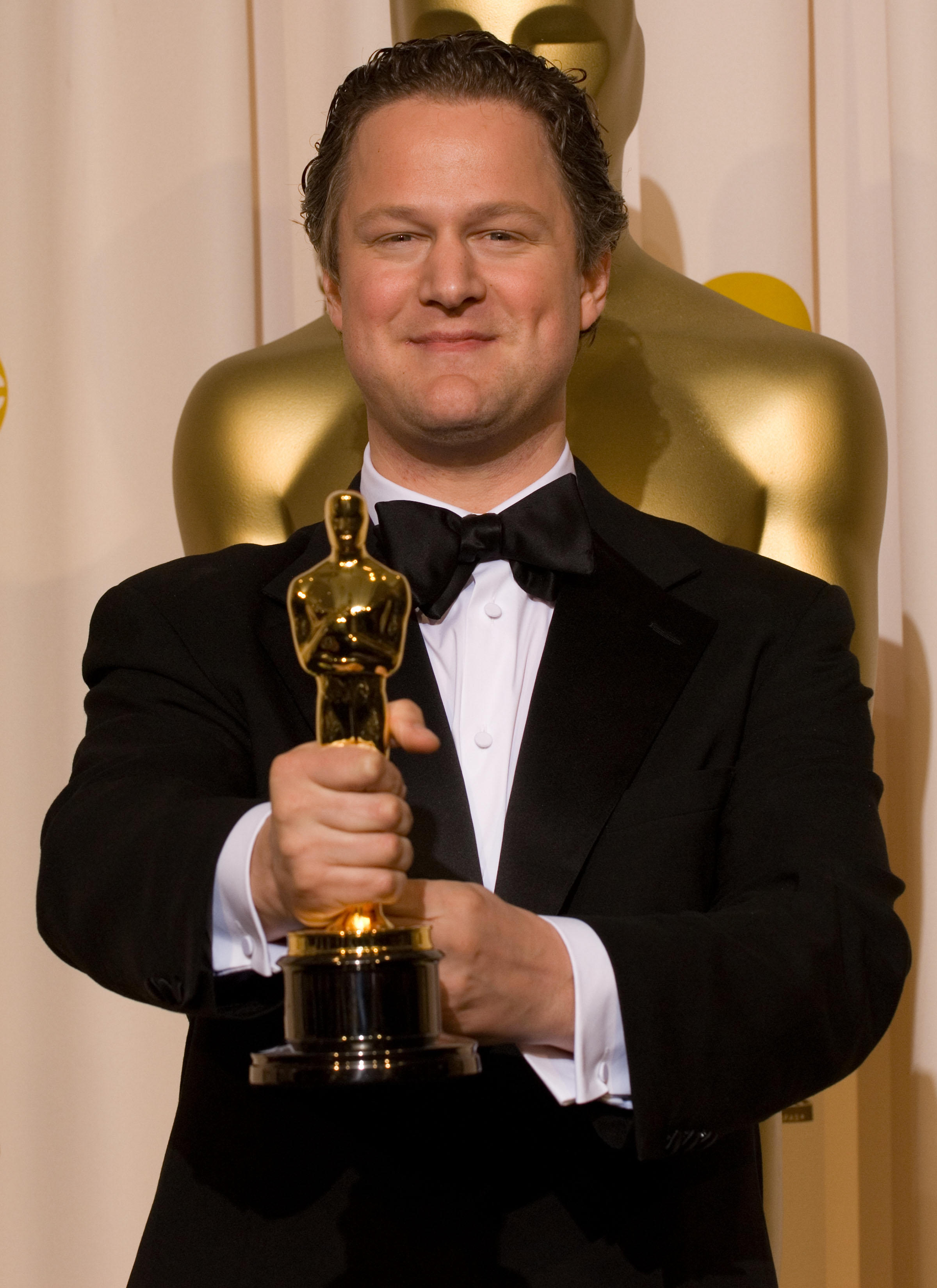

In the surprise of the night, director Florian Henckel von
Donnersmarck's film "The Lives Of Others" won best foreign language film.
Sherry Lansing (right), former studio chairman of Paramount Pictures won the
Jean Hersholt Humanitarian Award for her varied humanitarian work and efforts
for children, education and fighting cancer.
The biggest surprise of the night was "The Lives Of Others" winning the best
foreign language film Oscar. The film, from Germany, about spy
surveillance of actors and all German citizenry by the secret police agency
Stasi in the waning years of the German Democratic Republic in the mid and
late-1980's, was much lauded by critics around the world, but it was widely
expected that Mexico's film, the highly-acclaimed "Pan's Labyrinth", directed by
Guillermo Del Toro, would win the prize. When presenters Ken Watanabe and
Catherine Deneueve read the name on the envelope, a visibly shaken Florian
Henckel von Donnersmarck was stunned and frozen. By the time he reach the
stage to accept the prize the director admitted that he expected "Pan's
Labyrinth" to win. Still shaken and gasping, he praised California
governor Arnold Schwarzenegger for teaching him to strike the words "I can't"
from his own vocabulary, and paid homage to "Lives" actors Ulrich Muhe and
Sebastian Koch, saying, "you're the greatest artists, and don't let anybody tell
you otherwise." This was Mr. Von Donnersmarck's feature film directing
debut.
Alan Arkin won best supporting actor for "Little Miss Sunshine" as the
foul-mouthed, dope addicted grandfather in a dysfunctional family, in what was
considered a mild surprise for some (although this website predicted Mr. Arkin's
win back in January.) A tense
moment a snapshot of the five supporting actor nominees just seconds before Mr.
Arkin's name was announced showed nominee Djimon Hounsou putting a hand over his
face. He just couldn't look as the atmosphere was so tense. Eddie
Murphy was widely expected to win for his role in "Dreamgirls". (Michael
Arndt's original screenplay won the Oscar prize for "Little Miss Sunshine.")
And as expected, Jennifer Hudson took home the best supporting actress prize for
her role as Effie White in "Dreamgirls", a film that came into the 79th Oscars
with the most nominations (eight). Miss Hudson became only the third black
woman to win the supporting actress prize (1939-Hattie McDaniel, 1991--Whoopi
Goldberg) and the fourth overall in the 79 years of Oscars. Backstage, she
answered a question about the significant gaps between winners with tact and
diplomacy. "I'm sure there were unbelievable performances, but, you know,
there's a step, and there's a process to everything, and this [clutching her
Oscar at this point] represents a change and a difference." Hudson's Effie
White roused movie-going audiences across America and the world from their seats
with applause in the middle of "Dreamgirls" with the film's musical number "And
I'm Telling You I Am Not Going."
Onstage, she tearfully gave thanks to "God, whom without none of this would be
possible", but first and foremost thanked her grandmother for giving her the
inspiration to follow her own voice and doing something that her grandmother,
who had a stunning singing voice, did not get the opportunity to fully realize
due to the intense racially hostile climate in the U.S. during the first half of
the twentieth century.
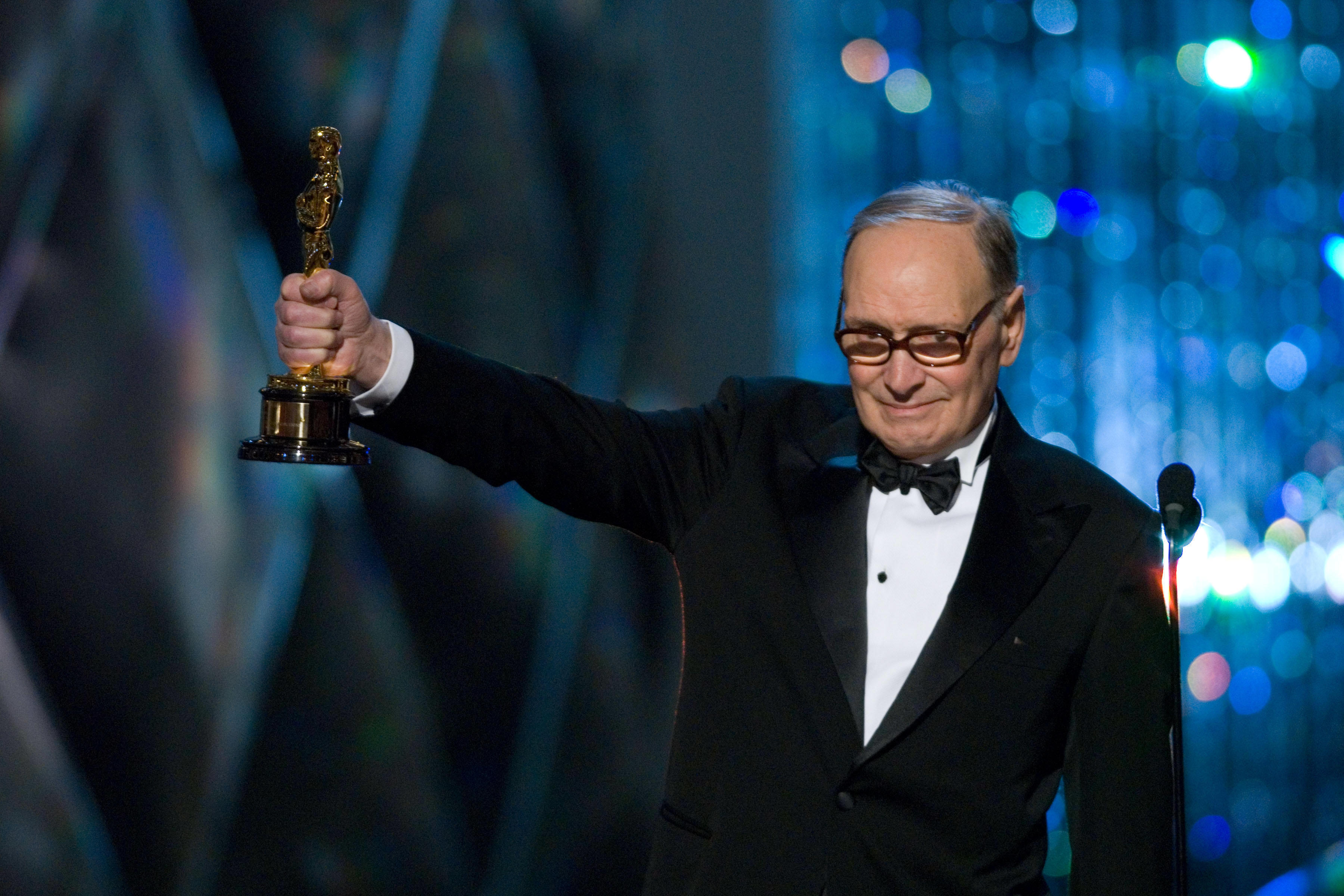

Legendary motion picture score composer Ennio Morricone holds out
his Honorary Oscar Award; Former U.S. vice president Al Gore, Producer Laurie
David,
Executive Producer Jeff Skoll, Producer Lawrence Bender and Co-producer Leslie
Chilcott flank Davis Guggenheim, who clutches the Oscar for the best documentary
feature "An Inconvenient Truth", which he directed. The film follows Mr.
Gore as he travels the world warning about the dangers of climate change.
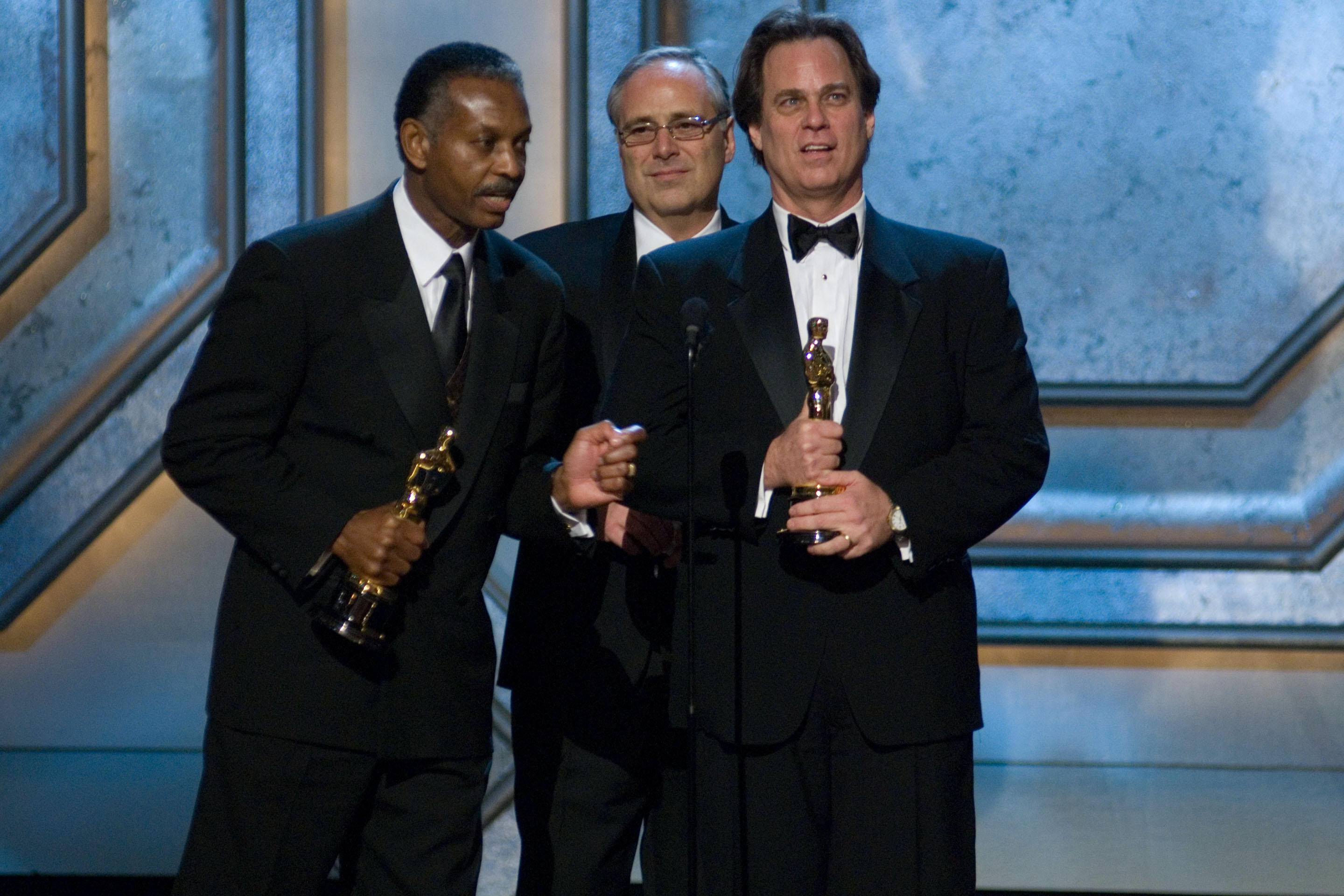
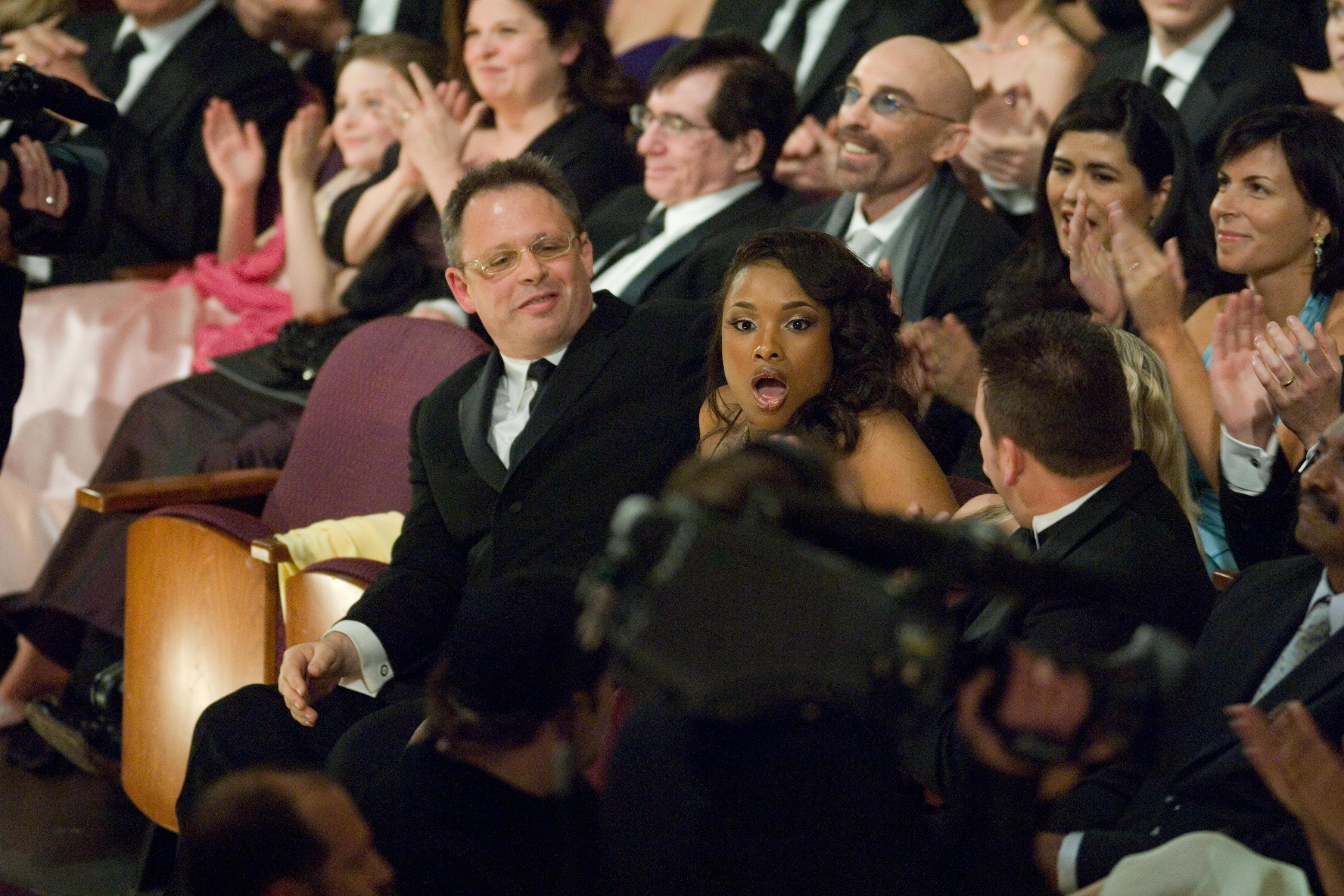
Willie Burton, Michael Minkler (center) and Bob Beemer accepting
their Academy Awards for best sound mixing for "Dreamgirls", which won two
Oscars on Oscar night.
A real "Dream" moment: Jennifer Hudson reacts to her name being called as the
winner of the best supporting actress Academy Award for "Dreamgirls." To her
immediate right is the film's director, Bill Condon.
The 79th Annual Academy Awards nominations had been noteworthy for the diversity
of nominees from different countries, including Mexico in particular.
During the actual awards show however, mainly American filmmakers were honored
in the major Oscar categories, although "Pan's Labyrinth" started off very well,
winning the first two Academy Awards of the evening. After that, just six
of the remaining 22 non-special award Oscar categories were won by filmmakers or
artists from countries beyond the United States (the other six winners included
Gustavo Santaolalla for the original music score of "Babel", the only
prize for which Alejandro Gonzalez Inarritu's film won; Milena Canonero, for her
costume design for "Marie Antoinette"; and Guillermo Navarro, for his
cinematography for "Pan's Labyrinth.")
"An Inconvenient Truth" won best documentary feature, and director Davis
Guggenheim was joined onstage with former U.S. vice president Al Gore in celebrating
the film and the importance of confronting climate change. Earlier Mr.
Gore was playfully goaded by Leonardo DiCaprio into announcing a run for
president of the United States, but as the former candidate began to announce
his intentions, the music played him off the stage. Mockingly, Mr. Gore
expressed shock, as Mr. DiCaprio laughed as they started to leave the stage.
The film also garnered a second Oscar as Melissa Etheridge won best original song for "I Need To Wake Up."
Special awards were bestowed upon Sheryl Lansing, the former Paramount Pictures
chairwoman and first woman to head a major studio. Tom Cruise presented
the Jean Hersholt Humanitarian Award Oscar to Ms. Lansing for her abundant
humanitarian work. Clint Eastwood presented prolific motion picture score
composer Ennio Morricone with an Honorary Oscar for his work scoring over 85
films in his career. In Italian, Mr. Morricone tenderly paid tribute to
those he touched with his music, as well as to his wife, while Mr. Eastwood
translated in English from the teleprompter.
And host Ellen DeGeneres basked in the Oscars as she capably handled the
near four-hour show, which contained just one glitch: the five-second delay
failed to cover Will Smith's audible "damn" curse during his remarks, but the
faux pas was not a major distraction. Early on DeGeneres said, "it's been
a dream of mine since I was a little girl, I've always wanted to host the
Academy Awards. It's a dream come true."
For the winners at the Kodak Theatre on this very special night, dreams came
true as well.
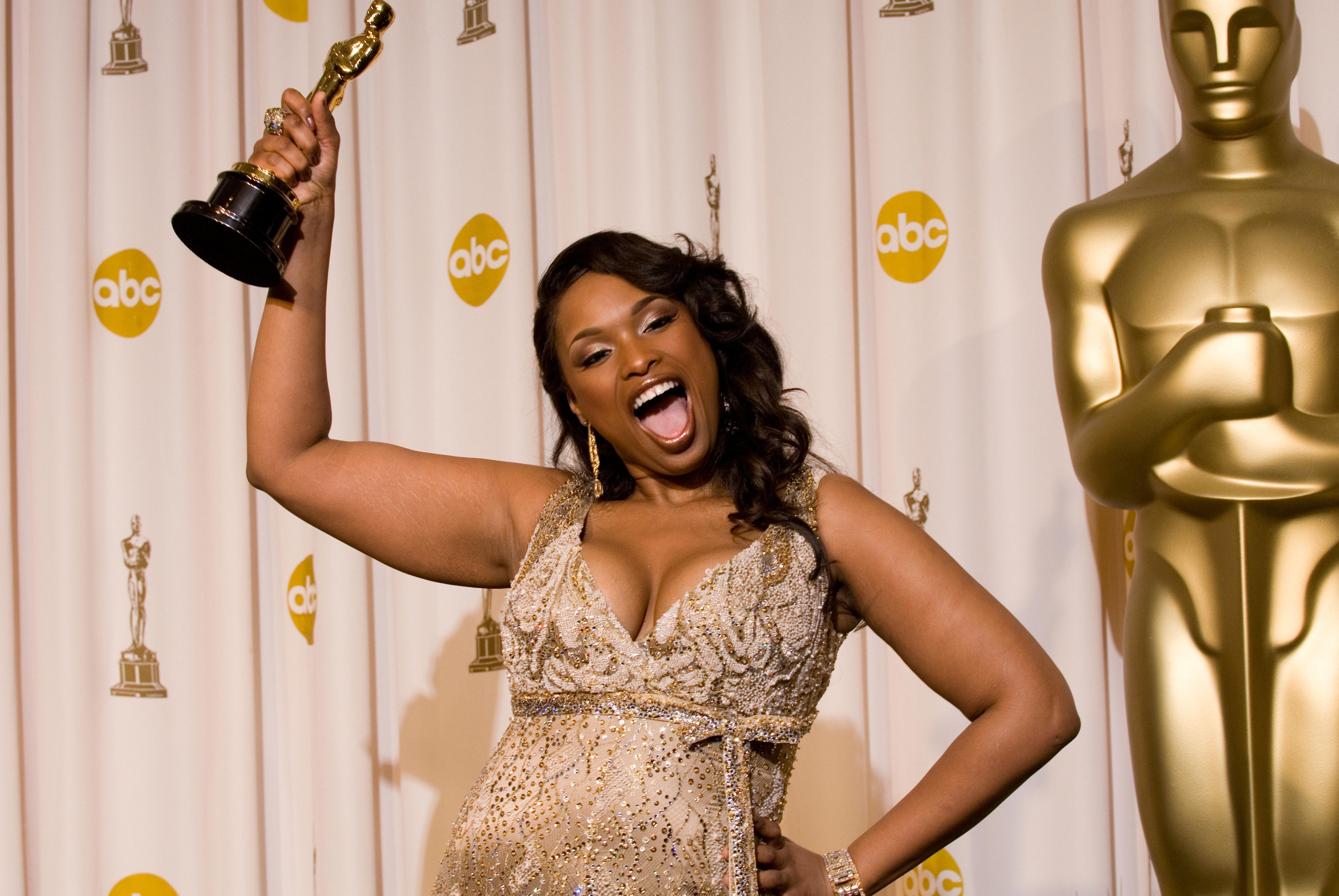
Poetic justice and pride: Jennifer Hudson holds her best
supporting actress Oscar aloft. She won for her role as Effie White in "Dreamgirls".
In 2004 she had been voted off television's "American Idol" by a
majority of Americans. In late 2005 she went on to beat 2004's "Idol" winner Fantasia Barrino
during an audition that included more than 800 others for the role of Effie
White in "Dreamgirls."
![]()
![]()
![]()